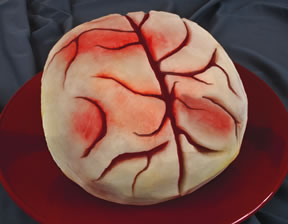Similar Content to: Food Safety

Many years ago, medical science was unable to provide a diagnosis or determine an actual cause for a variety of strange maladies that seemed to be a result of consuming certain foods. Today, while there is still no cure for food allergies, much has been learned about their causes, and significant progress has been made in providing effective, and in some cases, life saving treatments.
A severe or extreme degree of some of the symptoms, such as swelling of the tongue and throat and changes in blood pressure, can lead to an inability to breathe properly, resulting in unconsciousness and even death. This extreme level of symptoms is known as anaphylaxis. Prompt medical attention in these cases is vital in order to save the person's life. Some people may be required to carry on their person at all times, an emergency injection of medication, which is designed to ease the severe, life-threatening symptoms in the event that the allergy-causing protein is unknowingly consumed.
There are eight specific foods or types of foods that are responsible for 90 percent of all food allergies in humans: fish, shellfish, tree nuts, peanuts, cow’s milk, eggs, wheat, and soy. While some of these foods are more often responsible for allergic reactions in adults than children, people of all ages may have allergic reactions to the same foods. Fish, shellfish, and tree nuts are responsible for more food allergies in adults than in children, while cow’s milk, eggs, wheat, and soy most often affect children. Peanuts affect all ages about equally. Although food allergies affect people of all ages, four to six times as many children have food allergies as adults.
Eight Foods that are Responsible for 90% of all Food Allergies in Humans


















